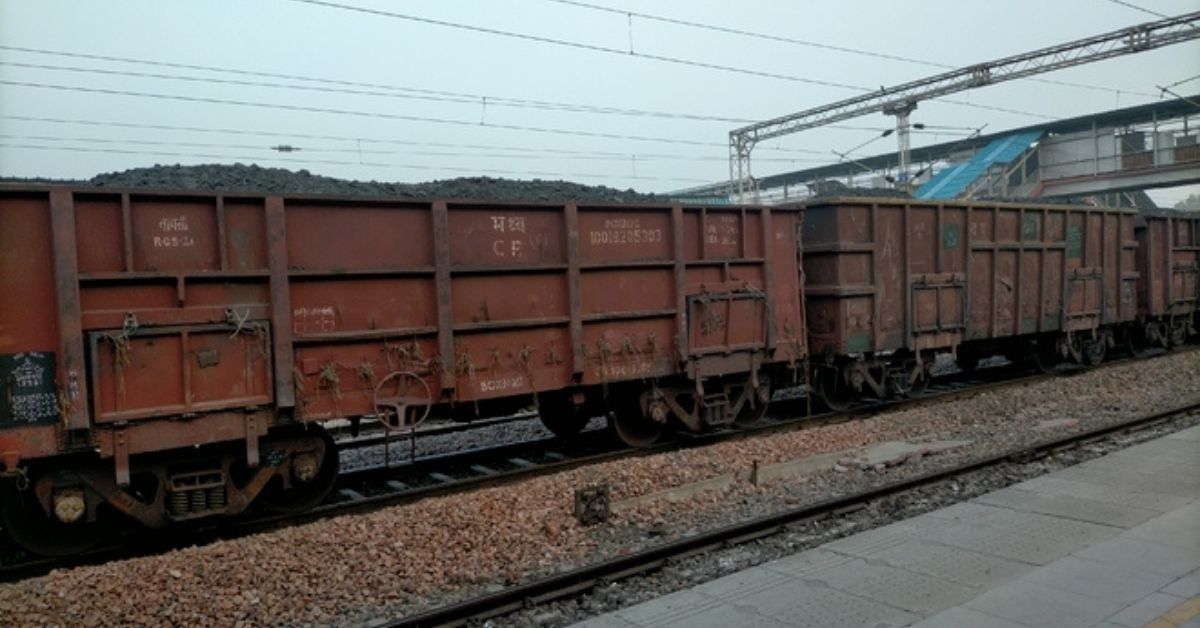Coal cargo accounted for 36 percent of the total cargo of 339.2 million tonnes handled by APSEZ in FY23 with CEO Karan Adani saying that it was hungry for more even as it seeks to improve the environmental, social and governance (ESG) credentials.
Coal cargo continues to prop up volume growth at Adani Ports and Special Economic Zone Ltd (APSEZ) despite its negative impact on the operator’s environmental, social and governance (ESG) credentials with Chief Executive Officer Karan Adani saying that the firm would look to grab a bigger market share of the fossil fuel this fiscal.
In FY23, India’s biggest private port operator handled 339.2 million tonnes (mt) of cargo, 9 percent more than the 312.39 mt handled in the previous year.
The growth in cargo volume was led by coal (plus 19 percent), containers (plus 7 percent) and liquids excluding crude (plus 7 percent).
Thermal coal and coking coal accounted for 36 percent or some 122 mt of the 339.2 mt of total cargo handled by the 14 ports/terminals run by APSEZ while containers had a 38 percent share with 8.76 million twenty-foot equivalent units (TEUs).
This is the first time in six years that the coal volumes accounted for 36 percent of the total cargo of APSEZ, a level last seen in FY17.
Since then, the coal volumes dipped to 33 percent in FY18 and FY19, further to 32 percent in FY20 and FY21 before rising to 33 percent in FY22 and 36 percent in FY23.
In FY17, containers had a 37 percent share in the overall volumes of APSEZ. The container volumes rose to 41 percent of the total cargo for three consecutive years between FY18 and FY20 and then to 43 percent in FY21 before dipping to 38 percent in FY22 and FY23.
APSEZ has been seeking to diversify its cargo mix in the last 5-6 years by increasing focus on new age cargo such as containers, liquid, and gas. The strategy has panned out well with the operator showing a compounded annual growth rate (CAGR) of 11 percent in containers between FY 18 and FY23 with volumes rising from 5.1 million TEUs in FY18 to 8.76 million TEUs in FY23. APSEZ currently has a 42.5 percent market share of India’s container market.
The container growth is expected to be muted at least for the next 18-24 months as western economies battle a slowdown and an impending recession, curtailing global demand for goods shipped in steel containers.
Coal trade, on the other hand, is witnessing a surge due to geo-political developments that has upset the energy mix calculations of nations, hurting global efforts to limit use of fossil fuels to meet climate change goals.
India’s 12 major ports handled 106.713 mt of thermal coal in FY23, a growth of 18.7 percent over the previous year’s 89.868 mt. The dozen ports handled 38.616 mt of coking coal and 42.082 mt of other coal.
The non-major ports that are controlled by the state governments handled 32.938 mt of thermal coal in FY23 (26.983 mt in FY22), 39.364 mt of coking coal and 107.210 mt of other coal.
APSEZ saw significant growth in coal volumes in FY23, Karan Adani told analysts during a post annual financial results call on 30 May.
“We do expect coal growth to continue. However, we do see more growth coming from domestic coal movement through the coastal route. We expect around 14-15 percent growth in domestic coal volumes and in imported coal volumes we expect a growth of around 7-8 percent. In coking coal, we expect a growth of 15-18 percent compared to last year on a pan India basis. And, over there, we will obviously look at capturing as much market share as possible. From our portfolio, we expect major growth coming from Krishnapatnam, Gangavaram, Dhamra and Mundra ports,” Karan Adani said.
On Wednesday, the Adani Group released a compendium of its FY 23 ESG performance. The compendium states how the portfolio of the companies are emerging as leaders by setting higher standards in ESG across all its businesses.
“The Adani portfolio of companies are committed to sustainable growth, capitalising on unprecedented opportunities. This growth is being shaped and influenced by the highest standards of responsibility across various aspects of our operations. The complement of outperformance and responsibility has enhanced stakeholder respect, confidence, engagement, valuations, and business sustainability,” the Group said while listing out the various recognitions accorded by top global ESG evaluators.
For instance, APSEZ, the Group’s ports unit, was ranked first in the ‘Transport & Logistics’ sector among emerging markets by Moody’s ESG Solutions.
It was ranked 10 out of 297 companies in the ‘Global Transportation & Transportation Infra Sector’ in S&P Global Corporate Sustainability Assessment.
By FY25, APSEZ has targeted 100 percent renewable energy mix in the electricity consumption along with 50 percent reduction in energy intensity and 60 percent reduction in emission intensity, it added.







